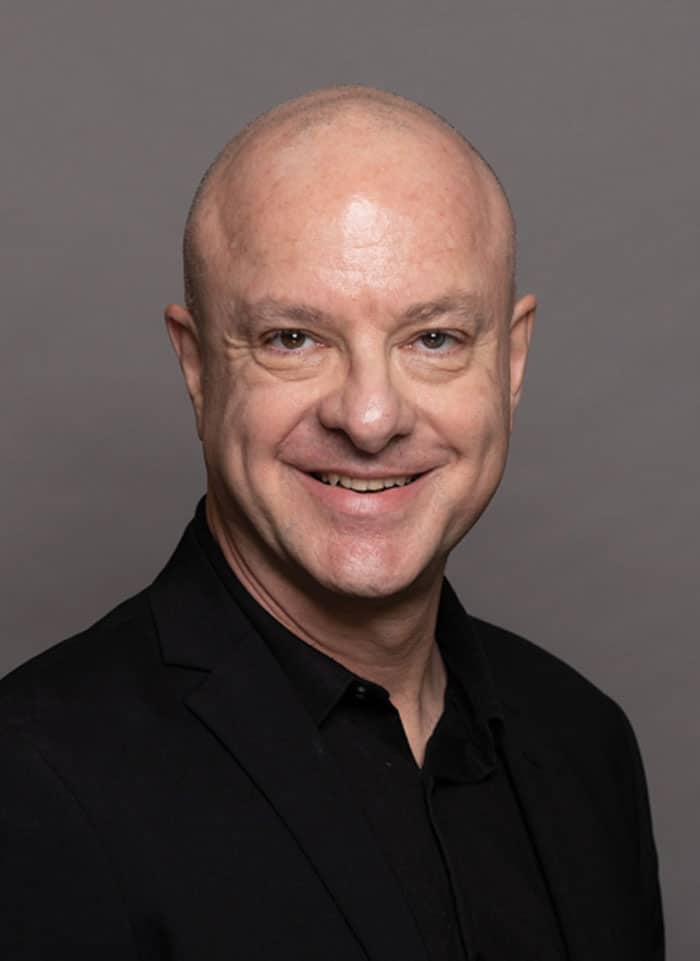
Vista Del Mar’s new Vista Autism Center (VAC) is taking the Israeli approach to treating autism. VAC, which is part of Vista Del Mar Child and Family Services, aims at providing a comprehensive therapeutic place for both autistic children, and their families, to thrive. “In Israel we’ve realized that the key to growth and development [of autistic children] is the emotional work,” Dr. Joshua Durban, head of VAC, told the Journal.
“In a world where everything is about correcting behavior … the way we work is [by] getting in deep contact with each individual child through the child’s eyes and … experience,” Durban said. “It’s a slightly different approach, because we do not change behavior or modify behavior or alter symptoms. We believe that the key to change is deep emotional contact between human beings.”
For more than 40 years, Durban has been a pioneer in the psychoanalytic investigation and treatment of early developmental traumas and diversities in children and their families. He was one of the first to fully analyze very young children on the autistic spectrum, incorporating and integrating his own findings with the work of British, French, Italian, German and American psychoanalysts and developmental research.
His first contact with autistic individuals happened at age 17. “I started working as a nurse’s aide in a psychiatric hospital, and there was a shortage of staff, so they took youngsters, whoever was willing to work there,” he said.
“The exciting thing about the study of autism is that many people from many, many disciplines come together, neurologists, psychologists, psychiatrists, educators, secular analysts; and in Israel we all work together.” – Dr. Joshua Durban
At the time, autistic children were mainly heavily medicated and admitted to psychiatric wards for very long periods. This was 48 years ago. “The whole autistic kind of phenomena in mental health and psychiatry and neurology is pretty young,” Durban said. “This is a new science, and the exciting thing about the study of autism is that it involves interdisciplinary work and multidisciplinary work.” He added, “The exciting thing about the study of autism is that many people from many, many disciplines come together, neurologists, psychologists, psychiatrists, educators, secular analysts; and in Israel we all work together.”

Durban says that autism is not a disease, it’s a condition. It’s a different operating system. He compares it to the difference between Microsoft and Apple. “Each one of us has [our] own neurological and psychological operating system,” he said. “And there needs to be a fit between systems.”
In autism, there are multiple factors that come into play: genetic, environmental and often even some traumatic factors. “Being different in our world in itself is traumatic,” Durban said. “We discovered that [autistic children] suffer from an overwhelming amount of very early anxieties.” When you lower their anxiety by connecting with autistic children on their level, it removes a barrier to learning.
Durban, who has been working at Vista Del Mar for about a year, is excited that they are finally at the stage to start seeing patients. He was initially invited to deliver a lecture at Vista’s Reiss-Davis Institute, and things developed from there.
“We’ve realized that there was a dire need to provide answers for the autistic population and their families,” he said. “Vista [has] such a long and wonderful tradition of caring for kids and families in a very kind of human and deep way.” He continued, “They were always psychologically informed that in the sense that they were after the subjective individual experience of the child, side-by-side with taking care of the environmental conditions in which the child lives.”
In this pilot year, VAC will be open to 20 families with autistic children up to seven years old; the program can grow from there. “The kids will be getting our special mode of treatment, the psycholytic way of working with autistic kids, which we’ve developed in Israel over 40 years, and which works beautifully there,” he said.
The children will receive a three-session-per-week treatment, and their parents will be seen on a regular basis. Their therapist will coordinate with other specialists to create the optimal learning and living environment for the child. This is a hybrid model, so some will come to the center and others will be able to access resources nearer to their home. “We have a spread of therapists all over town, because we know how difficult it is for parents to cater for the needs of a neurodiverse child, [and] its endless treatments and doctors,” he said. “We don’t want them to schlep for three hours in order to come for therapy.” He added, “We also are very sensitive to the financial needs or difficulties of the families, and we do everything in our power to make it happen.”
February is Jewish Disability Awareness and Inclusion Month, though the program is available to all families, not just those who are Jewish. “We need to acknowledge and embrace people who experience the world in a different way,” he said.
The Vista Autism Center is hosting an open house/meet and greet on February 13th from 5 to 7pm. For more information, contact autumnbreck@vistadelmar.org or visit vistadelmar.org/vista-autism-center.


































 More news and opinions than at a Shabbat dinner, right in your inbox.
More news and opinions than at a Shabbat dinner, right in your inbox.